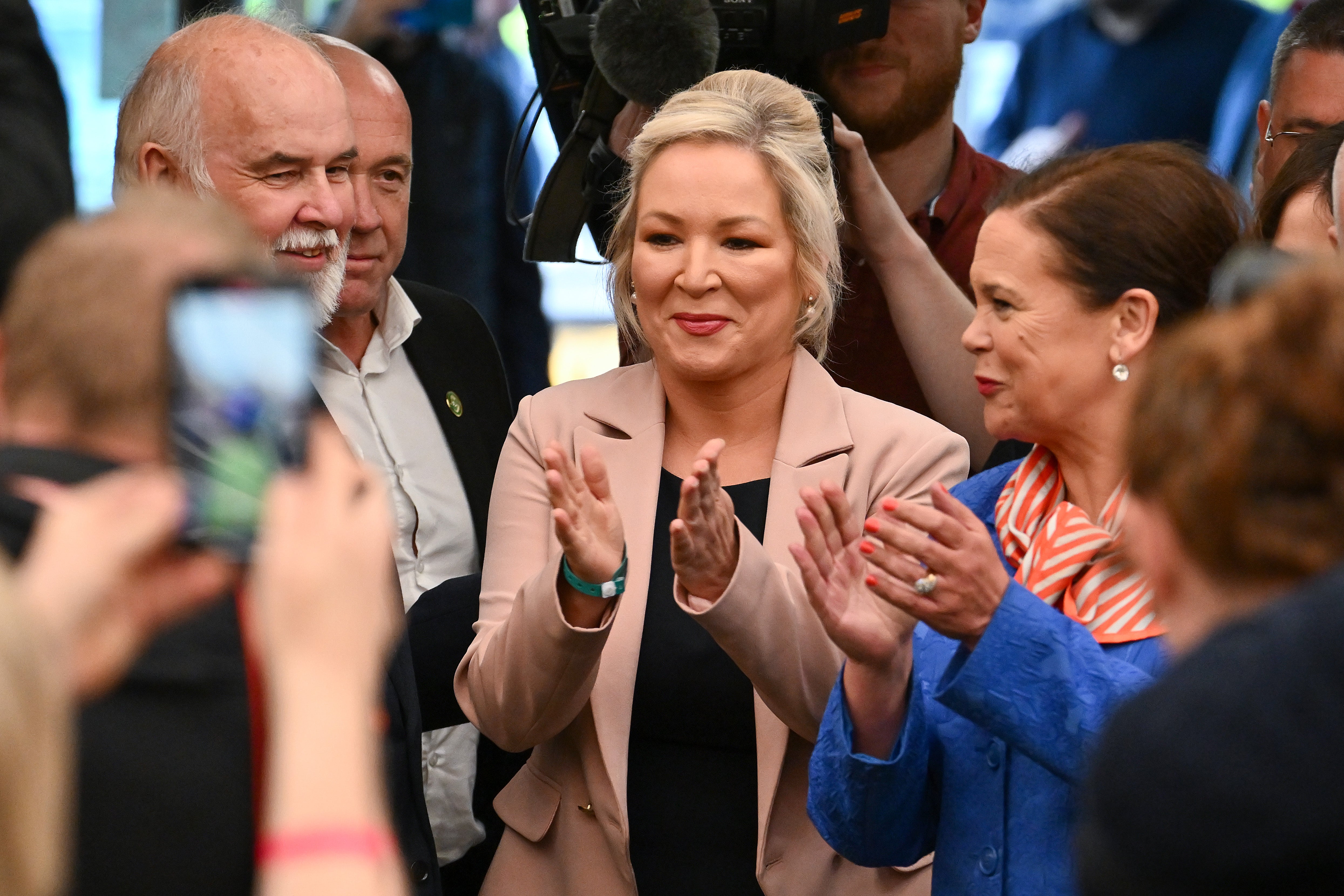It will be the DUP – not Sinn Fein – that breaks up the UK
Every time the DUP creates obstacles to progress, it only serves to align nationalists and the middle ground – and raises questions about whether Northern Ireland can ever function normally


When Ireland was partitioned 100 years ago, a line was drawn along a map to create a unionist majority in the northeast of the country. For 50 years, Irish nationalists did not have equal votes, while constituencies were gerrymandered. On Thursday, Sinn Fein received 29 per cent of first preference votes compared to the DUP’s 21.3 per cent, a historic moment in a state that was artificially designed to prevent a nationalist first minister from ever being elected.
But it was not the fervour of Irish republicanism that led to the rise of Sinn Fein, but insecurity within unionism. In normal democratic elections, parties campaign to go into government. But in the North of Ireland, our political reality is inverted, where the DUP campaigned on the condition that they would refuse to go into government and share power with nationalists until there was action taken against the Northern Ireland protocol.
The DUP have no power to change the Northern Ireland protocol, as it is enshrined in an international treaty between the UK and the EU. So, they have said they will prevent the formation of a government unless their demands are met. In the meantime, the cost of living and healthcare crises will be mitigated against by a Tory party who received 0.03 per cent of the vote in the NI election, as the DUP sacrifices its electorate as cannon fodder in their war against a customs border.
This refusal to go into government over the NI protocol was perceived as a smokescreen by Irish nationalists. Every time the DUP said they would not go into government, it was interpreted as a refusal to share power and another mark was added on the ballot for Sinn Fein. This galvanised the resolve of Irish nationalists and the middle ground. The DUP’s words were an affront on democracy, an assault on the Good Friday Agreement and a reminder of a bygone era of unionist domination. The battle cry of the election quickly became: “Anyone but the DUP.”
Throughout the campaign the DUP were out of touch with the interests of the electorate. During a one-hour election debate, Jeffrey Donaldson mentioned the Northern Ireland protocol 23 times, despite only 6 per cent of the electorate seeing it as an important issue. And in their election broadcast, they mentioned a “divisive border poll” five times. They sought to invoke fear and amplify tension in their continuous allusion to constitutional issues, while ignoring the pressing cost of living and healthcare crisis.
As an ideology, unionism is isolating itself, as it presents no solutions in their attempt to keep things the way they are. Nobel peace laureate John Hume once said that if the word “no” was removed from the English language, then Ian Paisley would be speechless. The DUP have carried on this legacy: no to the NI protocol, no to the Good Friday Agreement, and no to democracy. They have no vision for the future, only nostalgia for a past that only exists in the dreams of unionists – and was a living nightmare for nationalists.
This lack of vision lies in stark contrast to Sinn Fein and the Alliance party – the middle ground who increased their number of seats from 8 to 17. Although the futures these parties desire are different – one envisions a politics in a unified Ireland, the other, a future without green and orange politics – their appeal for a different way forward is appealing to younger voters who have never known the conflict and are tired of a failing executive.
Beyond their different visions of a future, these parties’ agendas are similar. Both seek social democratic solutions to address the cost of living crisis and health crisis. Both parties have progressive records on marriage equality, Irish language legislation and abortion rights for women. They also campaigned against Brexit, are pro-EU and support the Northern Ireland protocol. And most importantly, both parties are desperate to form an executive.
To keep up to speed with all the latest opinions and comment, sign up to our free weekly Voices Dispatches newsletter by clicking here
This alignment of objectives was reflected in an increasing amount of vote transfers between Sinn Fein and Alliance, as well as the squeeze of the Social Democratic and Labour Party (SDLP), who lost votes to both. These shared progressive values of Alliance and Sinn Fein act as a short-term remedy for historical identity politics, and are a unifying force against the DUP’s obstruction to forming an executive and their reactionary record on social issues.
And while Sinn Fein’s electoral success does not mean the inevitable collapse of the Union, it is a mandate for a serious conversation about whether Northern Ireland’s interests are better served in a unified Ireland in the European Union, or within post-Brexit Britain.
Every time the DUP creates obstacles to progress, it only serves to align nationalists and the middle ground – and raises questions about whether Northern Ireland can ever function normally. Sinn Fein can then point to Dublin – where they may be in government come the next general election in the Republic – as a viable, stable and progressive alternative. It won’t be Sinn Fein that breaks up the United Kingdom, but the DUP.
Join our commenting forum
Join thought-provoking conversations, follow other Independent readers and see their replies
Comments
Bookmark popover
Removed from bookmarks